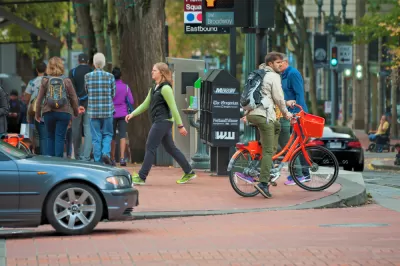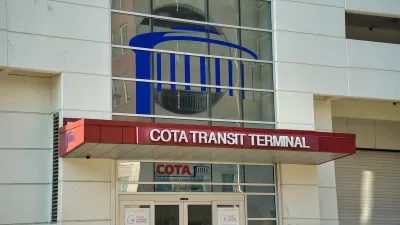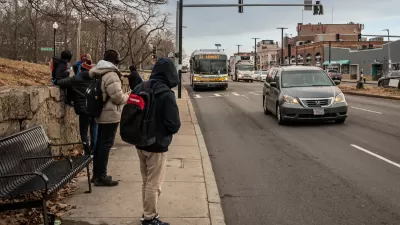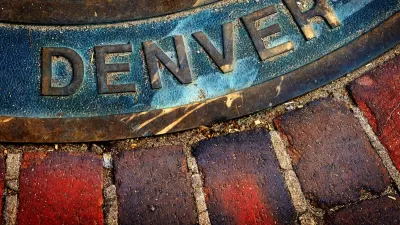Experts at the Urbanism Next conference advise city leaders not to overlook basic, "mundane" infrastructure that underpins the success of cities and transportation systems.

Rather than looking to flashy, high-tech transportation projects, writes Skip Descant in GovTech, urbanists have another recommendation for cities: "fix the sidewalks."
At the recent Urbanism Next conference, experts in the field cautioned against focusing on new technologies to the exclusion of basic infrastructure fixes and much-needed maintenance. "Getting the basics right is a necessary precondition for actually having the technologies work, in the sense of having people use them consistently," argued David Zipper, a visiting fellow at the Harvard Kennedy School's Taubman Center for State and Local Government. "Well-maintained sidewalks that connect to other transportation systems, he argued, could rise to high priority for any number of reasons — like improving safety for pedestrians or reducing car trips." A better sidewalk can encourage more people to use any number of high-tech mobility devices. "The moonshot mobility tech solutions that we think about — especially the shared ones — they really rely on cities first getting the basics right."
Zipper is not advocating a "retreat from technology." Rather, he asserts that "cities should more enthusiastically embrace the use of pilot projects as a way to test ideas against their ability to truly achieve some of those high-level goals, and rethink the project when it doesn’t."
FULL STORY: In the COVID Recovery, Don’t Overlook ‘Mundane Mobility’

Alabama: Trump Terminates Settlements for Black Communities Harmed By Raw Sewage
Trump deemed the landmark civil rights agreement “illegal DEI and environmental justice policy.”

Planetizen Federal Action Tracker
A weekly monitor of how Trump’s orders and actions are impacting planners and planning in America.

The 120 Year Old Tiny Home Villages That Sheltered San Francisco’s Earthquake Refugees
More than a century ago, San Francisco mobilized to house thousands of residents displaced by the 1906 earthquake. Could their strategy offer a model for the present?

In Both Crashes and Crime, Public Transportation is Far Safer than Driving
Contrary to popular assumptions, public transportation has far lower crash and crime rates than automobile travel. For safer communities, improve and encourage transit travel.

Report: Zoning Reforms Should Complement Nashville’s Ambitious Transit Plan
Without reform, restrictive zoning codes will limit the impact of the city’s planned transit expansion and could exclude some of the residents who depend on transit the most.

Judge Orders Release of Frozen IRA, IIJA Funding
The decision is a victory for environmental groups who charged that freezing funds for critical infrastructure and disaster response programs caused “real and irreparable harm” to communities.
Urban Design for Planners 1: Software Tools
This six-course series explores essential urban design concepts using open source software and equips planners with the tools they need to participate fully in the urban design process.
Planning for Universal Design
Learn the tools for implementing Universal Design in planning regulations.
Clanton & Associates, Inc.
Jessamine County Fiscal Court
Institute for Housing and Urban Development Studies (IHS)
City of Grandview
Harvard GSD Executive Education
Toledo-Lucas County Plan Commissions
Salt Lake City
NYU Wagner Graduate School of Public Service





























